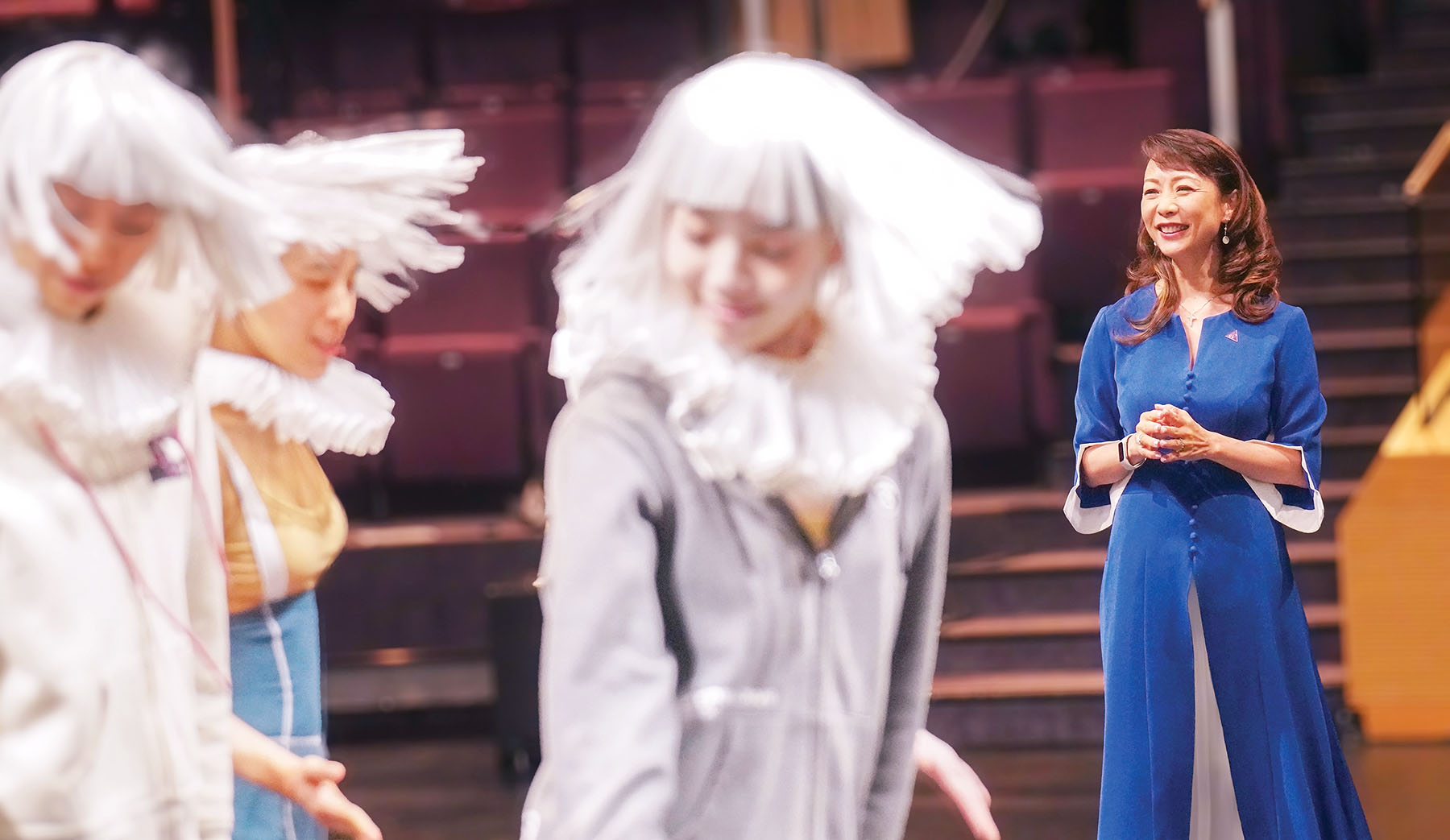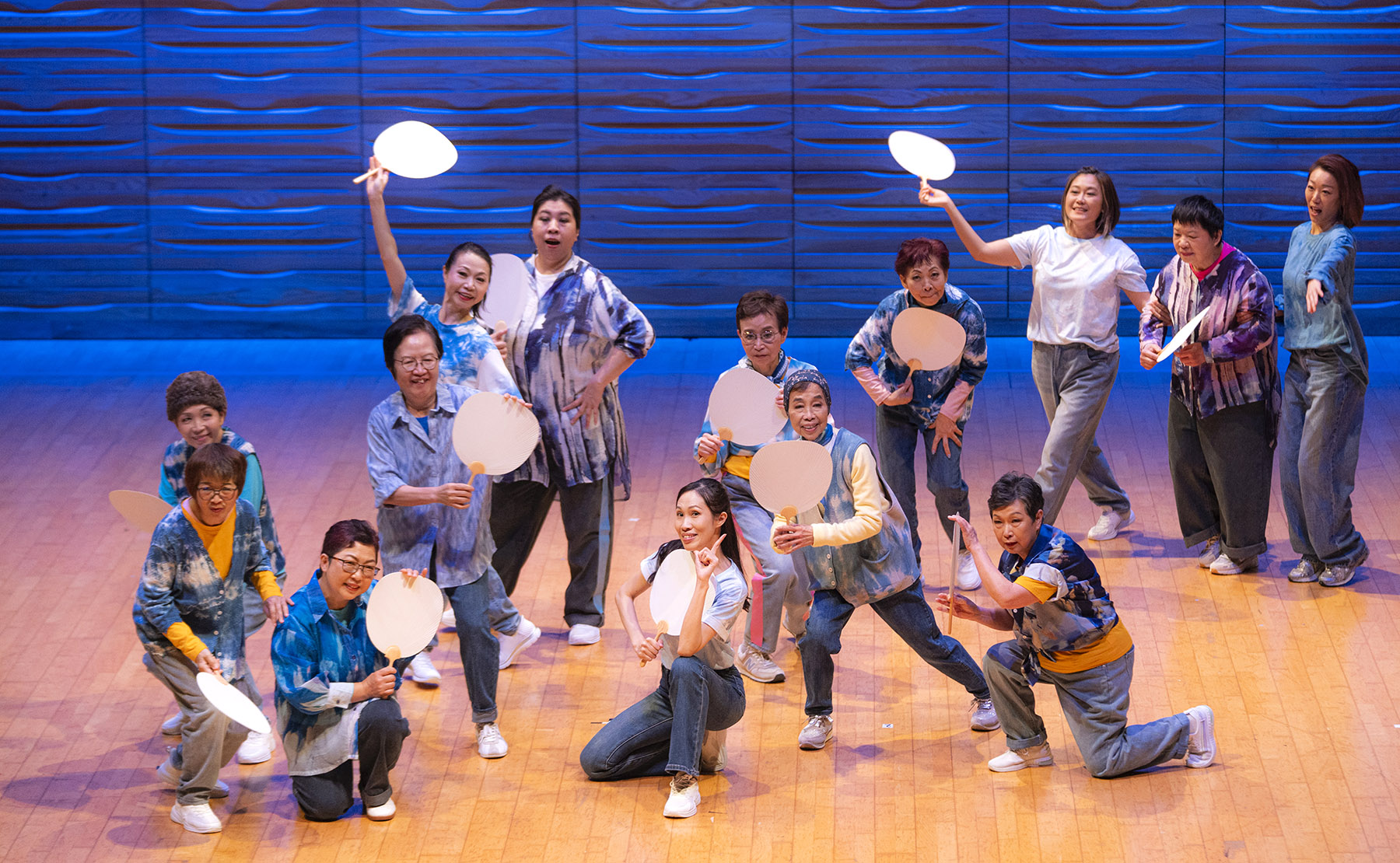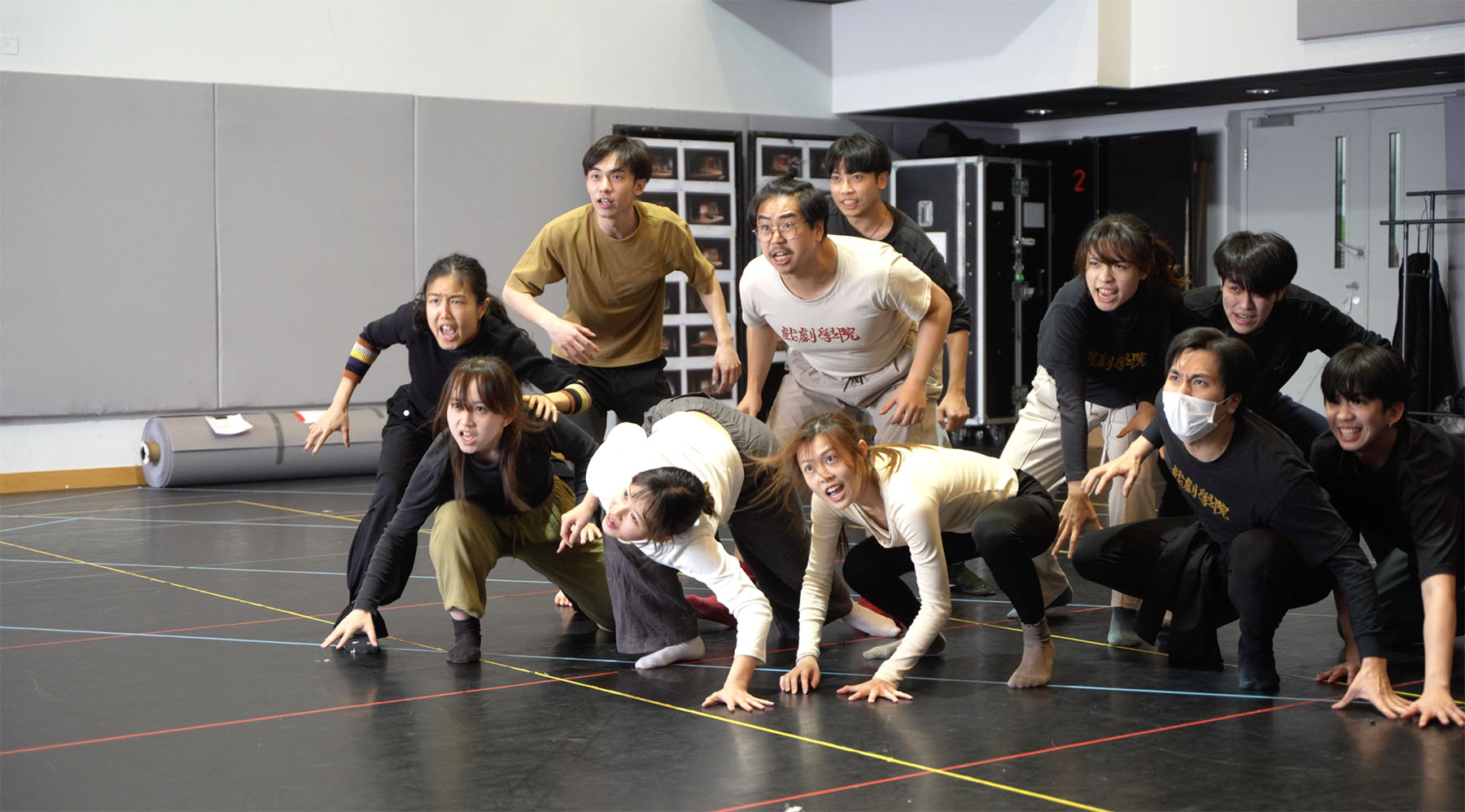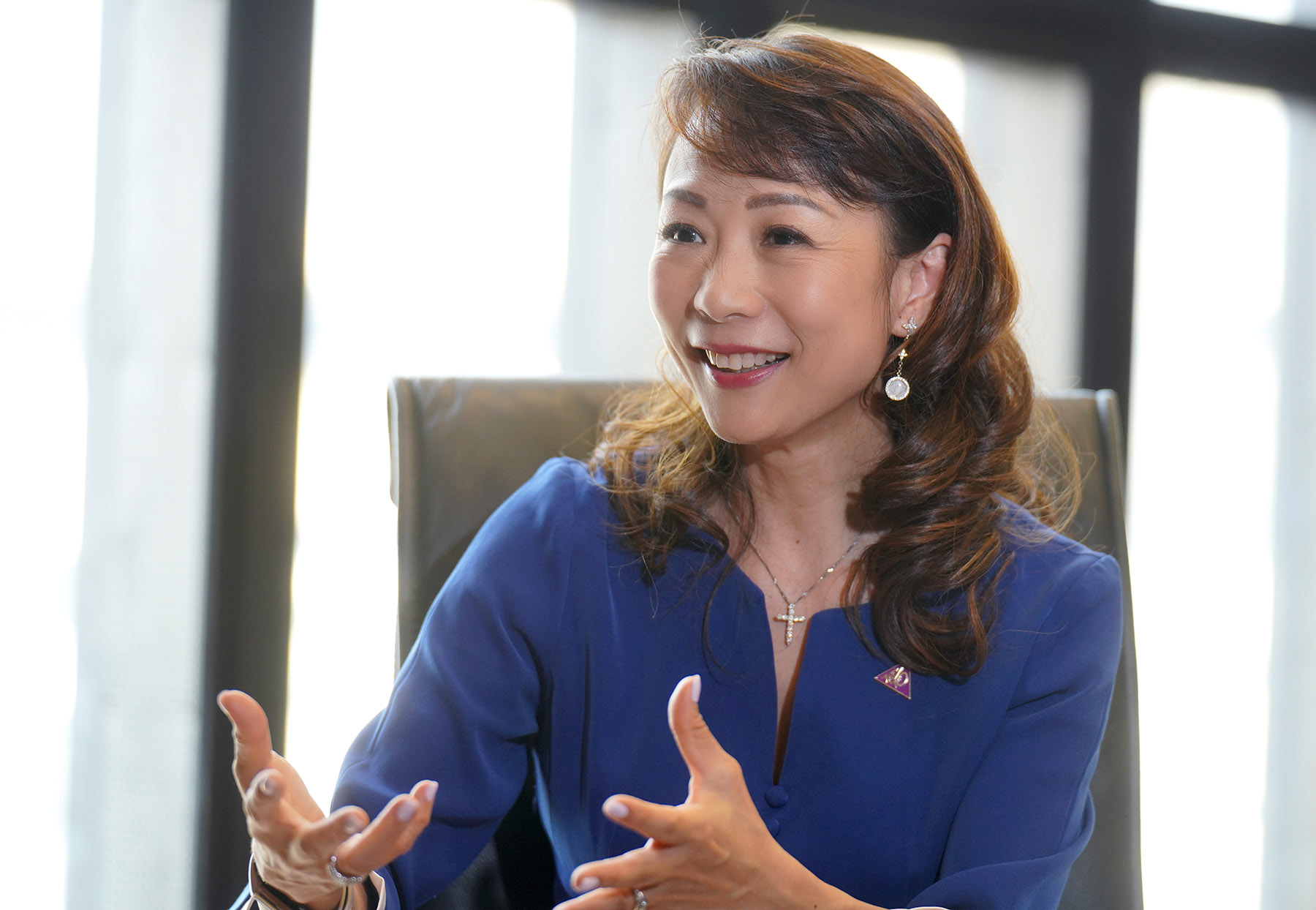Anna CY Chan, who took office as the director of the Hong Kong Academy for Performing Arts last month, reveals her ambitious program to promote the institution on the international stage to Chitralekha Basu.

Anna CY Chan seems to have come a full circle. Some weeks back, when she entered a Gifted Young Dancer Program showcase at the Hong Kong Academy for Performing Arts (HKAPA), the parents in the audience stood up and clapped in her honor. Unbeknownst to her, the news of her appointment as the institute’s director was out in the public domain and the recognition from the parents of 11-to-18-year-olds — testing the waters before they decided whether to pursue dance as a vocation — meant a lot, especially seeing that traditionally Hong Kong parents have preferred their children to go for academic programs that would set them up for life. And training in dance — a field in which jobs are few and stage careers are usually over by the age of 40 — certainly wasn’t one of them.
“Suddenly I realized that I’ve become a role model for dancers having a proper, sustained and even successful career,” says Chan, who first entered the lofty portals of the HKAPA’s Gloucester Road campus way back in the mid-’80s. Hong Kong’s first and so far only integrated tertiary education institute for students training in Chinese Opera, dance, drama, film and television, and theater and entertainment arts was less than two years old at the time. Chan had recently graduated from secondary school and been waiting out the few months before she went to Australia to train in ballet. It was Carl Wolz, the first dean of the HKAPA’s School of Dance, who generously invited her to try out a short-term dance program in the interim.
READ MORE: Four decades of prepping artists
Now vested with the responsibility of steering Hong Kong’s leading performing arts school from the front, Chan is keen to extend the scope of the openness and inclusive spirit that she was touched by on that first visit. One of her noteworthy achievements as the dean of the HKAPA’s School of Dance — a post she has held since 2018 — was to start the Jockey Club Dance Well Project, aimed at encouraging people suffering from Parkinson’s disease to express themselves through dance. Chan says that the experience of the students who guided the participants through the motions has been nothing short of transformative.
“Every time, after a few hours of helping out with the participants, they all come back with tears in their eyes, saying things like: Now I know why I have to do art, that it is not just about myself, it’s about the mission.”
“This way, our artists of the future know that they can make a difference in the world.”

Celebrating a milestone
Since taking office in April, one of her most immediate tasks has been to ensure the smooth delivery of the academy’s 40th anniversary celebrations. Under her leadership, the School of Dance Summer Performances will see a breakthrough when they are staged later this month. For the first time in the HKAPA’s history, students of its dance school’s three disciplines — ballet, Chinese and contemporary dance — have come together for a new production, Into the Blue, that fuses elements of all three genres into a seamless new form. Chan invited School of Dance alumnus Ricky Hu Songwei — now resident choreographer at the Hong Kong Ballet — and his wife, Mai Jingwen, who specializes in Chinese dance, to choreograph the piece.
“This new work, while celebrating the uniqueness of each dance discipline, could be a catalyst for preparing our students for diverse performing roles — so that they are able to fit into any dance company anywhere on the global stage,” Chan says.
Fittingly, the institute’s annual musical — What the Buddha Said, playing this week — has not been conceived on a grander scale before. Directed by Tony Wong, the piece revisits the journeys of some of the students who have passed through the HKAPA’s gates over the last 40 years through the lens of the classic Chinese 16th-century adventure epic Journey to the West.
Around 200 students and alumni — including celebrity artists — have been roped in to contribute to the production. Chan says that while musicals have always been a collaborative effort, “this is really the first time all six of the academy’s schools play a major role in making the piece”.

Four-pronged policy goals
There can be no doubt that Chan has been entrusted with leading a fine institution comprising students and faculty that are above par. The HKAPA was Asia’s No 1 in the Performing Arts category per the QS World University Rankings for six years in a row until it slid down by one place quite recently. Chan, however, would like to seize the moment, and lay the groundwork for “where we can take the academy in the next 40 years”.
She has drawn up an ambitious, and well thought-through, plan with four-point policy goals. The first of these has to do with opening up more channels of communication and networking between the HKAPA graduates and potential hirers from around the world. “The skill sets of our graduates are first class,” she says, though that information may not always be articulated, or comprehended, to the extent that it can yield results. Under the guidance of Chan — whose international network of associates in the creative fields extends from Australia to Austria — the HKAPA’s student counseling facility is looking to “close this gap”.
Extending the institute’s global reach would necessitate projecting it as a socially responsible brand, adhering to conscious lifestyle practices. “I want to explore the idea of putting on green productions and developing the concept of green theater,” Chan says. “In Asia, we do not have too many performance arts schools, or stage productions, doing this yet, so I think for us it could be a very good opportunity. If we as an educational institution can inspire better sensitivity and mindset changes in artists of the future, I think it’s a contribution to overall societal development.”
The third item on her agenda takes its cue from Hong Kong Chief Executive John Lee Ka-chiu’s 2024 Policy Address, in which he mentions “adopting an industry-oriented approach to promote the development of the cultural and creative industries”. Chan says she wishes to develop the HKAPA as “an incubator for innovation” — create a free space for developing new ideas that may not necessarily lead to stage productions, but in case they demonstrate potential “our students can have a go-to platform” rather than having to seek out a producer. “I really believe that if we can create a space for new ideas to flow, with no pressure on the participants to show results, they will be able to achieve more.”

Last but certainly not the least of her dreams regarding the HKAPA’s future is to see it shape up into a bridge between East and West — a tangible, physical entity embodying the idea set down in the 14th National Five-Year Plan (2021-25) to develop Hong Kong into an East-meets-West center for international cultural exchanges.
“I think the core strength of the academy is similar to that of Hong Kong’s,” says Chan. “Both function as a bridge facilitating cultural exchanges between China and the rest of the world. For the past 40 years, we have been developing the environment necessary for such exchanges to take place.”
ALSO READ: 6 actors, 3 directors, 4 versions, 1 classic play
She points out that several among the HKAPA’s faculty members are Hong Kong natives who have spent many years abroad, while those from other countries have made Hong Kong their home. “So this kind of internationalization of the institution is already in place, and we would like international festivals and production houses to understand that we can serve as a gateway for them to explore Chinese culture.”
There is a tinge of regret in her voice about missing out on the chance to interact with her School of Dance students on a daily basis, now that she is responsible for all six schools of the HKAPA.
“I think a director needs to act like the captain of a ship — setting the anchor and making sure that the pathway is clear and at the same time trusting her teams to perform well in their respective areas of expertise,” Chan says. “It’s important that we all face in the same direction. I am hoping that we are able to develop a much stronger and unique identity for the academy that meets our future needs.”
If you go
What the Buddha Said
Dates: Through May 10
Venue: The Lyric Theatre, Hong Kong Academy for Performing Arts, 1 Gloucester Road, Wan Chai
School of Dance Summer Performances
Dates: May 17 and 18
Venue: The Jockey Club Amphitheatre, Hong Kong Academy for Performing Arts.
www.hkapa.edu


